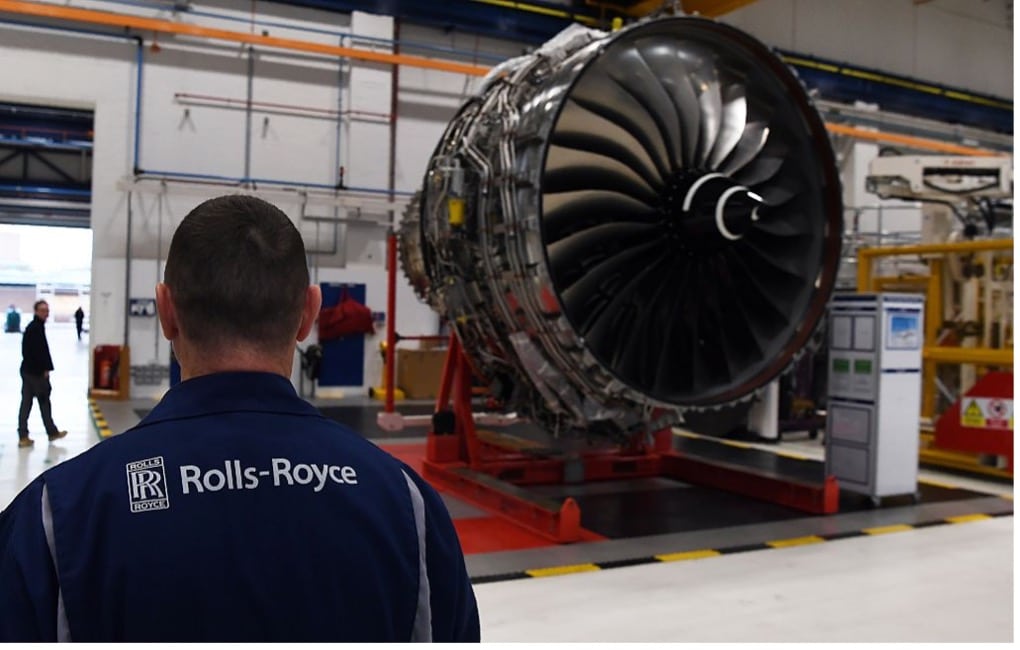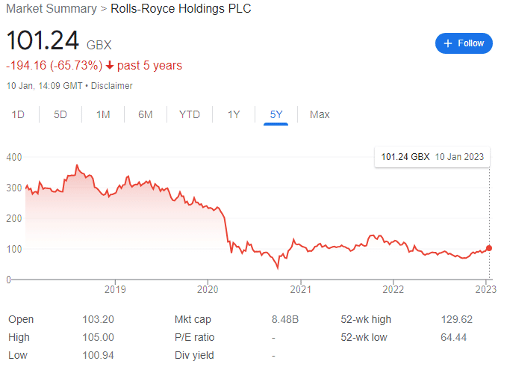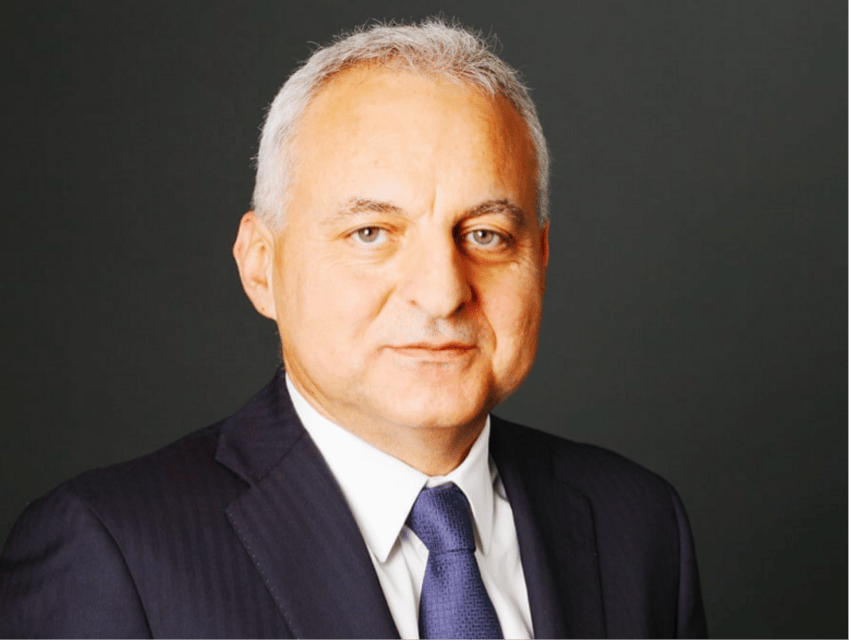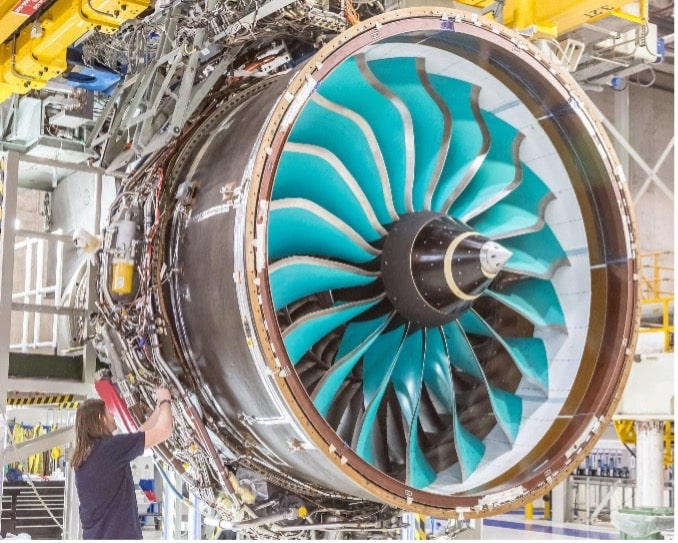Rolls-Royce is developing multiple innovative technologies, any one of which could see its share price rocket over the medium term.

Rolls-Royce has long been hailed as the ‘jewel in the crown’ of British engineering, a hallmark synonymous with quality and lasting endurance. But the company has struggled in recent years. Its most lucrative division, civil aviation, has been battered by pandemic lockdowns as the need for aircraft engines and servicing collapsed.
Moreover, with a global recession potentially around the corner, there’s no guarantee that revenue will recover as quickly as anticipated. And having racked up a £4 billion drawn debt pile, its share price has fallen by 65% over the past five years to just over £1 apiece.

But having restructured financially, and with a new energetic CEO — nicknamed ‘Turbo’ Tufan — about to fly in, Rolls’ tech advances could see a share price recovery over 2023.
Rolls-Royce share price: SMRs
It’s widely accepted that Tesla’s outperformance compared to every other auto manufacturer in the world comes down to three things: first-mover advantage in the EV space, its technological advances, and the personality of CEO Elon Musk.

However, Rolls isn’t the same. Outside of a select circle of investing enthusiasts few could name outgoing CEO Warren East, and still fewer incoming CEO Tufan Erginbilgic. The FTSE 100 is not exactly renowned as the home of tech innovation, and Rolls is thought of as a legacy brand with its government-controlled golden share.
But the company is working on some truly revolutionary advances which remain heavily underreported, and a share price re-rate over the longer term is perfectly possible.
To start with, the FTSE 100 company is planning to build UK-based Small Modular Reactors, nuclear power plants roughly the size of two football pitches which will be able to power 500,000 homes each when online. Advantageously, SMRs are factory-built making them both faster and cheaper to construct than traditional reactors, such as the those under construction at Hinkley Point.
RR has already narrowed down the site of its first SMR component factory to three possible sites: IAMP, Teesworks, or Gateway. And excitingly, the company is already in talks with INEOS to build its first SMR at the chemical giant’s Scottish refinery. Rolls is now simply waiting for government funding approval to proceed.
Tech advances
Then there’s Rolls’ electrical aviation advances. Rolls’ ‘Spirit of Innovation’ all-electric plane set multiple world records in November 2021, hitting a top speed of 555.9 km/h over 3 km, and an average speed of 532.1km/h over 15 km. Both records have been verified by the World Air Sports Federation.
Previous records were annihilated; Spirit’s 3km record broke the existing record by 213.04km/h, and the 15km record was 292.8 km/h faster. And after hitting a max speed of 623km/h, the plane is now the world’s fastest all-electric vehicle.
But that’s not all. Rolls-Royce has also partnered with easyJet, and late last year the two ran the world’s first ever modern aero engine on hydrogen alone. Test flights using hydrogen fuel are expected in 2023.

Finally, Rolls is developing an UltraFan Power Gearbox, which has also set a world record, this time in aerospace power. It offers ‘a step change in gas turbine sustainability, saving 25% fuel compared with the first generation of Rolls-Royce Trent engines.’
And the company says that ‘on test it has delivered 87,000 horsepower or 64 megawatts – enough to power a medium-sized city.’ Further, the gearbox is designed to run on 100% sustainable aviation fuel, as opposed to the traditional alternative, with plans to explore options including hybrid-electric and hydrogen power solutions. Again, testing on the demonstrator engine is due to begin in 2023.
It’s not hard to see the advantages of the new gearbox: the world’s largest aircraft engine will be cheaper, more environmentally friendly, and can even be used in the next-gen electric and hydrogen planes being developed by the FTSE 100 company.
Jefferies analyst Chloe Lemarie upgraded Rolls-Royce from ‘hold’ to ‘buy’ a week ago, with a price target of 125p. While her valuation was based predominantly on demand growth for defence and civil aviation services, she also mentioned these ‘new market’ opportunities to support her valuation, suggesting that the time is coming when these technological breakthroughs will start to filter into practical use and eventually investor returns.
Of course, Rolls-Royce has disappointed in the past, but it remains a stellar FTSE 100 stock for the long-term investor with reticent patience.
This article has been prepared for information purposes only by Charles Archer. It does not constitute advice, and no party accepts any liability for either accuracy or for investing decisions made using the information provided.
Further, it is not intended for distribution to, or use by, any person in any country or jurisdiction where such distribution or use would be contrary to local law or regulation.